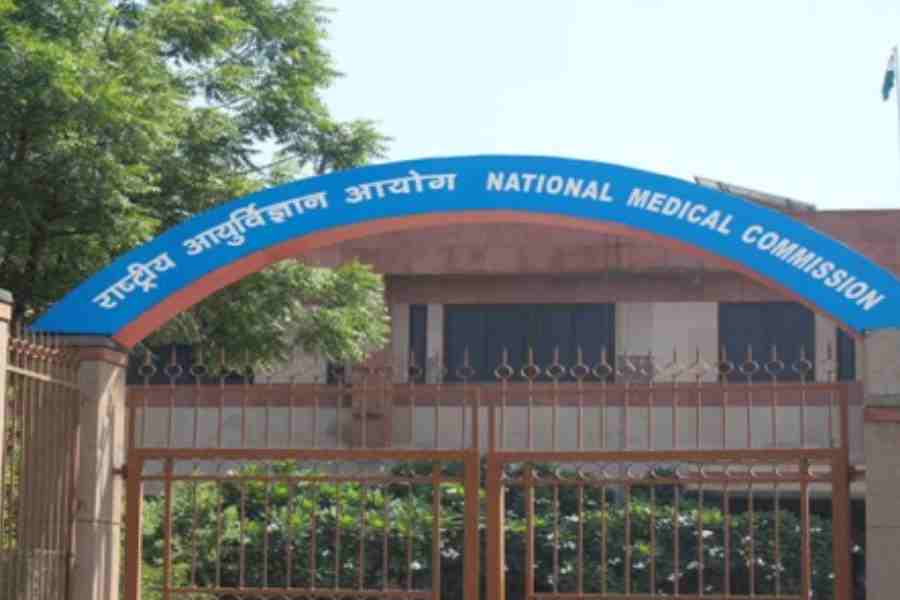Concern over quality of medical education, around 40 colleges 'lose recognition' for flouting NMC norms


India’s apex medical regulatory authority has flagged deficiencies in dozens of medical colleges across the country, amplifying concerns among some doctors that the Narendra Modi government’s drive to add medical college seats is compromising the quality of education aspiring doctors receive.
The National Medical Commission (NMC) has sent notices to multiple medical colleges over recent weeks in a process which one official has described as “routine”. But doctors not associated with the NMC and medical students have called the process opaque and its outcome worrisome.
Around 40 medical colleges across the country have “lost recognition” over the past eight weeks allegedly because they had not adhered to the standards set by the NMC, the Press Trust of India reported on Wednesday, citing unnamed “official sources”.
And about 100 more medical colleges in Andhra Pradesh, Assam, Bengal, Gujarat, Pondicherry and Tamil Nadu may face similar action, the report said.
The lapses in the colleges related to faculty rolls, Aadhaar-linked biometric attendance procedures, and closed-circuit TV cameras, it said.
A member of the NMC said the notices to the colleges were part of a “routine” and “dynamic process” in which the regulatory authority flags issues or lapses in colleges that they are expected to rectify.
"The exercise is in the interest of the students,” the member told The Telegraph.
Sections of the medical community, including the Indian Medical Association (IMA), the country’s largest body of doctors, said the lapses appear to be an outcome of a hurry to establish new medical colleges or add seats without ensuring every college meets NMC standards before accepting students.
Union health minister Mansukh Mandaviya had on Tuesday listed on Twitter the doubling of both undergraduate and postgraduate medical seats in the country, among the Modi government’s achievements over the past nine years.
The number of medical colleges has increased from 387 in 2014 to 693 in 2023. Alongside the new colleges, regulatory authorities have also approved extra seats, cumulatively leading to over 105,000 MBBS seats in 2023, compared with 51,000 in 2014, and over 66,800 postgraduate seats in 2023 compared with around 31,000 in 2014.
"Adding medical seats without first ensuring that the colleges adhere to all required standards is making a mockery of medical education,” said Sharad Agarwal, the IMA’s national president. “It is unfair to students in colleges with lapses and it is unfair to people who will in future come under the care of doctors who graduate from such colleges.”
The standards prescribed by the NMC specify the number of teaching faculty across different departments, details of classrooms, laboratories, and other infrastructure, and access to patients in the medical college hospitals to ensure that students gain adequate clinical exposure.
The IMA had earlier this month, responding to complaints from students in three government medical colleges in Uttar Pradesh, expressed concern that the NMC had given blanket approval to many colleges on the basis of affidavits pledging that the colleges would establish the required standards.
Nearly 300 medical graduates from government medical colleges in Banda, Azamgarh and Saharanpur who completed their final year MBBS exams last year learnt earlier this year while doing their internships that the NMC had not recognised their batch.
The Banda college authorities had told their students that the college had received a note from the NMC earlier this month pointing out deficiencies relating to faculty attendance issues and cameras in the outpatient departments, three students told this newspaper.
In a note to Mandaviya on May 20, the IMA had described the NMC practice of approving medical colleges on the basis of affidavits and subsequently flagging lapses after their students had graduated as “absolute careless functioning”.
Without NMC recognition, the students could not seek registration as doctors, which serves as the licence to practise medicine, nor could they join postgraduate courses. After the IMA sent the letter, they were allowed registration, although college recognition is still pending, the students said on Wednesday.
Members of the Federation of the All India Medical Associations (FAIMA), a network of postgraduate medical students and doctors, have also cautioned about the implications of the increase in the number of medical seats without adequate focus on infrastructure and the teaching faculty.
“For decades, India has been known for its high quality of medical education — doctors from our medical colleges are in the US and the UK. But the current focus on increasing the number of medical graduates without an equal focus on teaching faculty or other infrastructure could undermine the quality of education,” said Rohan Krishnan, an orthopaedic surgeon in New Delhi and an adviser to FAIMA.
A graduate from one of the three affected colleges in Uttar Pradesh said faculty absence had impacted the students in her batch every year after the first year. "On average, two or three classes were cancelled almost every week,” the student said.
To make up for the inadequate guidance from teachers, the graduate said, she and many of her batchmates had to rely on online coaching lessons that students typically use to prepare for entrance exams for postgraduate medical courses.
Medical experts have long underscored the need for additional seats to be complemented with adequate financial resources for faculty and other infrastructure.
Anant Bhan, an adjunct professor at the Centre for Medical Ethics in the Yenepoya Medical College near Mangalore, said: "Imbalances between seats and available faculty could have serious implications on the ability of graduates from such colleges to serve as skilled medical practitioners for India’s future health needs."
Queries from this newspaper to the NMC and the health ministry on the number of colleges alerted by the NMC and their implications for their students have not evoked any response.